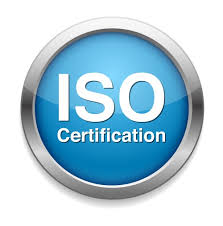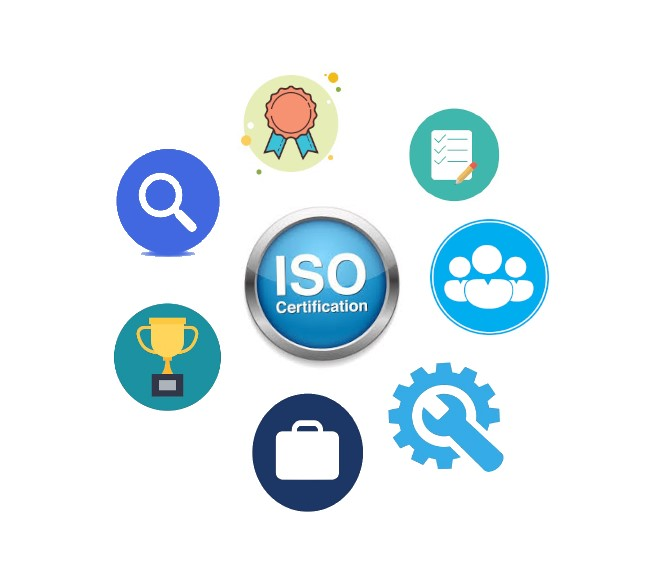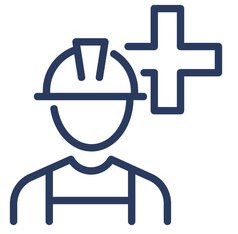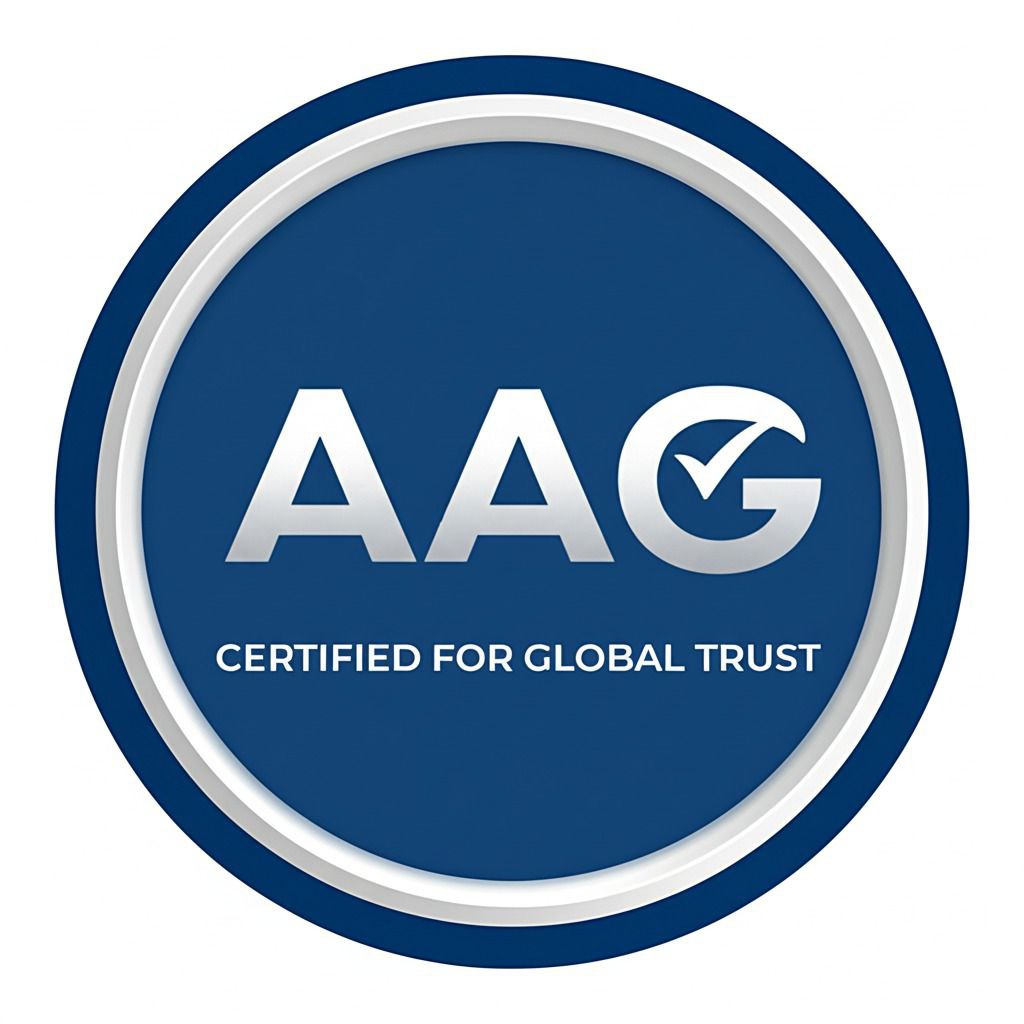Our Services
ISO Certifications
Understanding ISO and ISO Certification
The International Organization for Standardization (ISO) is an independent, non-governmental body established on February 23, 1947. Headquartered in Geneva, Switzerland, ISO operates in 165 countries, making it the world's largest developer of voluntary international standards. It makes world trade easier by providing common standards among nations. Around twenty-two thousand standards have been set, covering everything from manufactured products and technology to food safety, agriculture, and healthcare.


Its primary goal is to facilitate global trade by providing common standards across nations. To date, ISO has set approximately 22,000 standards, covering a vast array of sectors from manufactured products and technology to food safety, agriculture, and healthcare.
While ISO is a non-governmental organization, its guidelines are not directly enforced by law. However, many companies actively pursue ISO certification to demonstrate an efficient and reliable process that customers can trust for quality, value, and reliability. This commitment to ISO standards helps businesses enhance their credibility and competitive edge in the market.

The ISO Certification Process
The specific process for ISO certification varies depending on the standard a company seeks to achieve. It's crucial that certification is performed by an accredited certification body to ensure its validity and recognition. When considering certification, businesses must carefully review the relevant guidelines for their chosen standard.
ISO certification is highly respected due to its rigorous requirements. After initial certification, companies must participate in regular audits to ensure they continuously meet ISO standards and promptly implement any necessary changes to address updates.
ISO certificates are valid for three years from their issue date. To maintain certification, a comprehensive recertification audit is required at the end of this three-year period to prevent the certification from lapsing.

Here's a breakdown of how ISO certifications help businesses:

Global Recognition: ISO standards are internationally recognized and respected. Achieving certification signals to customers, partners, and stakeholders worldwide that your business adheres to globally accepted best practices.

Increased Trust: Certification acts as an independent verification of a company's commitment to quality, efficiency, safety, or other specific areas. This builds significant trust with potential clients, especially in competitive or sensitive industries.

Competitive Advantage: In many markets, ISO certification is a prerequisite for bidding on contracts or partnering with larger organizations. Even where not mandatory, it differentiates a certified business from its non-certified competitors.
Occupational Safety
AAG: Empowering Your Workforce with Internationally Recognized Safety Training
AAG specializes in providing comprehensive and professional workplace safety training services tailored for technical and professional personnel. We are dedicated to equipping your team with the essential knowledge and practical skills needed to ensure a safe and secure working environment, particularly within the construction industry.


Our intensive training programs span five practical working days, culminating in a pass/fail examination. Successful participants are awarded an internationally recognized certificate, widely accepted in nearly every country worldwide. This certification underscores the high standard of our training and the global applicability of the skills acquired.
Our Core Training Offerings
Work at Height Training
Crucial for personnel operating in elevated environments, focusing on fall prevention, safe access, and rescue procedures.
Fire Protection Training
Equipping your employees with the ability to identify fire hazards, implement preventive measures, and respond effectively in emergency situations.
Other Construction-Related Safety Training.
A range of specialized courses designed to address specific safety challenges inherent in the construction sector, ensuring a holistic approach to workplace safety.
At AAG, we believe that a well-trained workforce is the cornerstone of a successful and secure operation. Our commitment to high-quality, internationally recognized training ensures that your employees are not only compliant with safety regulations but also confident and capable in handling real-world safety challenges.
LEED Certification
Leadership in Engineering Education Development
The 12-day LEED (Leadership in Engineering Education Development) program is a hands-on, practice-plus-theory course for engineers in the construction sector. Open to all disciplines and experience levels, it blends expert-led lectures, site visits, and a team capstone to mirror real project conditions. Participants build capability in project analysis and planning, QA/QC, schedule and cost control, codes and standards application, HSE fundamentals, and modern construction management methods—while strengthening leadership and communication skills for the field and office.
Graduates earn a certificate of completion, a portfolio-ready capstone, and a stronger professional network—equipping them to take on larger responsibilities with confidence.
Program Benefits

Advanced Skills Development: Build practical expertise in modern construction methods, QA/QC, and project control.

Recognized Certification: Earn our highest-level training certificate upon successful completion.

Expert Instruction: Learn from a team of seasoned engineers with deep site and management experience.

Leadership Readiness: Build the confidence and tools to lead teams, manage risks, and deliver results.
Training Focus Areas
Road & Highway Construction
Planning, materials, testing, and quality for modern road works.
Diverse Structures
Site logistics and execution across buildings and special facilities.
Utility Infrastructure
Water supply, sewerage networks, and maintenance best practices.
Maintenance
Lifecycle upkeep for transportation assets and public works.
Who Should Attend
Graduate & site engineers, supervisors, QA/QC staff, planners, and aspiring project leads.
Format & Assessment
Lectures, site visits, group capstone, and short assessments/presentations.
Certification
Certificate of completion awarded to participants who meet program requirements.
Riverbed Engineering & Stabilization Certification (RESC)
Advanced Training for River Infrastructure
The Riverbed Engineering & Stabilization Certification (RESC) is an intensive professional training program designed for civil and hydraulic engineers, geotechnical specialists, construction professionals, and infrastructure project managers engaged in river regulation, flood protection, and channel stabilization. Modern river engineering requires a multidisciplinary approach integrating hydraulics, geotechnics, structural engineering, and environmental considerations. RESC equips participants with advanced technical knowledge and practical skills to design, construct, stabilize, and rehabilitate riverbeds in line with contemporary standards and sustainable practices.
Through applied workshops and case-based simulations, participants analyze real project scenarios, review technical drawings, calculate discharge capacities, and evaluate stabilization alternatives under varied hydrological conditions—building confidence to deliver resilient, safe, and sustainable river infrastructure.
Core Competencies Developed
River hydraulics: Flow behavior analysis and channel response.
Sediment transport & erosion control: Design against scour and degradation.
River morphology & dynamics: Channel evolution and stabilization planning.
Bank protection systems: Gabions, riprap, concrete linings, geotextiles.
River training works: Channel stabilization and alignment techniques.
Flood control infrastructure: Discharge capacity calculations and design.
Scour analysis: Around bridges and hydraulic structures.
Slope stabilization & embankments: Reinforcement and stability checks.
Ground improvement: Techniques for wet and unstable soils.
Construction methodologies: Excavation, dredging, re-profiling, sequencing.
Environmental considerations: Sustainable river engineering and impacts.
Inspection & maintenance: Long-term performance evaluation.
Program Format
Instruction
Theory sessions, applied workshops, hydraulic modeling exercises, and practical simulations.
Real-Case Work
Analyze projects, review drawings, compute discharge capacities, and compare stabilization options.
Audience
Civil/hydraulic engineers, geotechnical specialists, construction teams, and project managers.
Assessment & Certification
Theoretical Examination: Hydraulic principles, stabilization design, erosion control systems, and engineering calculations.
Practical Assessment: Case-study analysis, design proposals, and technical problem-solving for riverbed stabilization.
Evaluation is conducted individually based on professional engineering standards and transparent criteria. Participants who meet the standards are awarded the Riverbed Engineering & Stabilization Certification (RESC), recognizing competence in riverbed construction, stabilization design, and hydraulic infrastructure projects.
Sport Center Engineering Certification (SCEC)
Design, Build, and Manage Modern Sport Facilities
The Sport Center Engineering Certification (SCEC) is a 10-day intensive, professional training program for civil and structural engineers, architects, construction engineers, and building professionals specializing in the design, construction, and technical management of modern sport center facilities. Balancing theory with practice, SCEC delivers applied engineering knowledge, international standards, and practical solutions required for multi-functional sports complexes.
The program blends theoretical instruction, real-case studies, and hands-on technical exercises to equip participants with the tools to coordinate between design and execution phases, ensure quality control, and deliver safe, efficient, and standards- compliant sport facilities.
Key Competency Areas
Functional planning & layout: Architectural zoning and circulation for sport centers.
Structural design principles: Loads, serviceability, and performance for sports buildings.
Foundations & structures: Reinforced concrete and steel systems for arenas and halls.
Flooring systems: Indoor/outdoor sports surfaces and compliance requirements.
HVAC & ventilation: Thermal comfort, air quality, and acoustic solutions.
Sports lighting: Design in accordance with international standards.
Fire protection & safety: Codes, evacuation planning, and risk mitigation.
Energy efficiency: Sustainable design and construction practices for facilities.
Project management & QA/QC: Delivery planning and quality control systems.
Design–execution coordination: Technical interface management and sequencing.
Program Format
Duration
10 days of balanced theory, applications, case studies, and exercises.
Learning Mode
Lectures, real-case analysis, and hands-on technical work.
Audience
Engineers, architects, construction professionals, and facility managers.
Assessment & Certification
Theoretical Exam: Technical knowledge, standards, and engineering principles.
Practical Exam: Project-based analysis or applied technical problem-solving.
Assessments are individual and transparent. Successful participants receive the Sport Center Engineering Certification (SCEC), confirming competence to design and construct sport center facilities in line with modern practices and international standards.
Applied Geology for Infrastructure Projects (AGIP)
Applied Geology for Modern Infrastructure
The Applied Geology for Infrastructure Projects (AGIP) is a 10-day professional certification program designed for engineering geologists, geotechnical and civil engineers, and infrastructure project professionals working on large-scale construction and public works. AGIP bridges geological theory with engineering application to support planning, design, and execution in complex ground conditions—reducing subsurface risks and enabling informed decisions.
Participants learn how geological data directly influences foundation design, slope stability, tunnel support systems, groundwater control, and long-term performance. The training combines structured theory with applied case studies from real projects, field data interpretation, and risk evaluation based on geological conditions.
Core Topics & Competencies
Geological mapping & investigations: Subsurface exploration and data acquisition.
Borehole logging & cores: Interpretation and rock mass classification.
Soil & rock mechanics: Fundamentals for infrastructure design decisions.
Geological risk identification: Roads, bridges, tunnels, and dams.
Slope stability & landslides: Analysis and mitigation strategies.
Groundwater behavior: Impacts on excavation and foundation systems.
Deep foundations & retaining: Geological considerations and design inputs.
Tunnel geology & support: Geological control on support system selection.
Hazard mitigation: Geological risk strategies for infrastructure projects.
Lab & in-situ tests: Interpretation and reporting for engineering use.
Participants practice preparing professional geological and geotechnical reports that clearly communicate ground conditions, risks, and design implications to designers and contractors—improving coordination and reducing unforeseen construction issues.
Program Format
Duration
10 days with structured theory and applied case studies.
Learning Mode
Field data review, cross-section evaluation, and risk analysis.
Audience
Geologists, geotechnical/civil engineers, and infrastructure professionals.
Assessment & Certification
Theoretical Examination: Applied geology principles, infrastructure risk analysis, engineering interpretation.
Practical Assessment: Case-study evaluation, report preparation, or applied problem-solving.
Evaluation is individual and transparent. Successful participants receive the AGIP Certification, formally recognizing competence in applying geological expertise to infrastructure development and large-scale construction projects.
Sports Flooring Systems Specialist (SFSS)
Design, Specification, Installation, and Performance Evaluation
The Sports Flooring Systems Specialist (SFSS) program is an intensive 10-day professional training for civil engineers, construction professionals, project managers, technical supervisors, and installation specialists seeking advanced expertise in sports flooring systems. Modern facilities demand engineered floors that meet strict international performance standards for safety, durability, athlete performance, and shock absorption.
SFSS provides comprehensive technical knowledge and hands-on skills to deliver indoor and outdoor systems. Participants work through classroom instruction, practical workshops, case studies, and live technical demonstrations to analyze specifications, assemble systems, and evaluate performance using professional tools.
Key Technical Domains
System classification: Wooden sprung, synthetic, polyurethane, PVC, rubber, acrylic, hybrid.
Performance criteria: Shock absorption, vertical deformation, ball rebound, slip resistance, load distribution.
Subfloor preparation: Moisture control, leveling, tolerances, and surface readiness.
Installation procedures: Multi-layer assemblies and floating floor systems.
Line marking & compliance: Standards and court dimensions.
Indoor vs. outdoor: System requirements and environmental performance.
Maintenance & lifecycle: Protocols, durability, and long-term management.
Testing & QA: Procedures and inspections for quality assurance.
Standards compliance: Requirements set by bodies including FIBA and FIFA.
Troubleshooting: Common installation errors and technical resolution.
Special emphasis on engineering principles for athlete safety, injury prevention, and surface performance optimization—highlighting how improper installation or material selection impacts performance, durability, and maintenance costs.
Program Format
Duration
10 days combining theory, practical workshops, and demonstrations.
Learning Mode
Classroom instruction, case studies, simulated assemblies, and performance evaluation.
Audience
Engineers, project managers, supervisors, installers, and facility teams.
Assessment & Certification
Theoretical Examination: System classification, specifications, compliance standards, performance metrics.
Practical Assessment: System analysis, installation planning, or on-site simulation tasks.
Evaluation is individual and based on transparent criteria. Successful participants receive the Sports Flooring Systems Specialist (SFSS) Certification, recognizing professional competence in selecting, designing, supervising, and installing sports flooring systems in line with modern standards and international best practices.